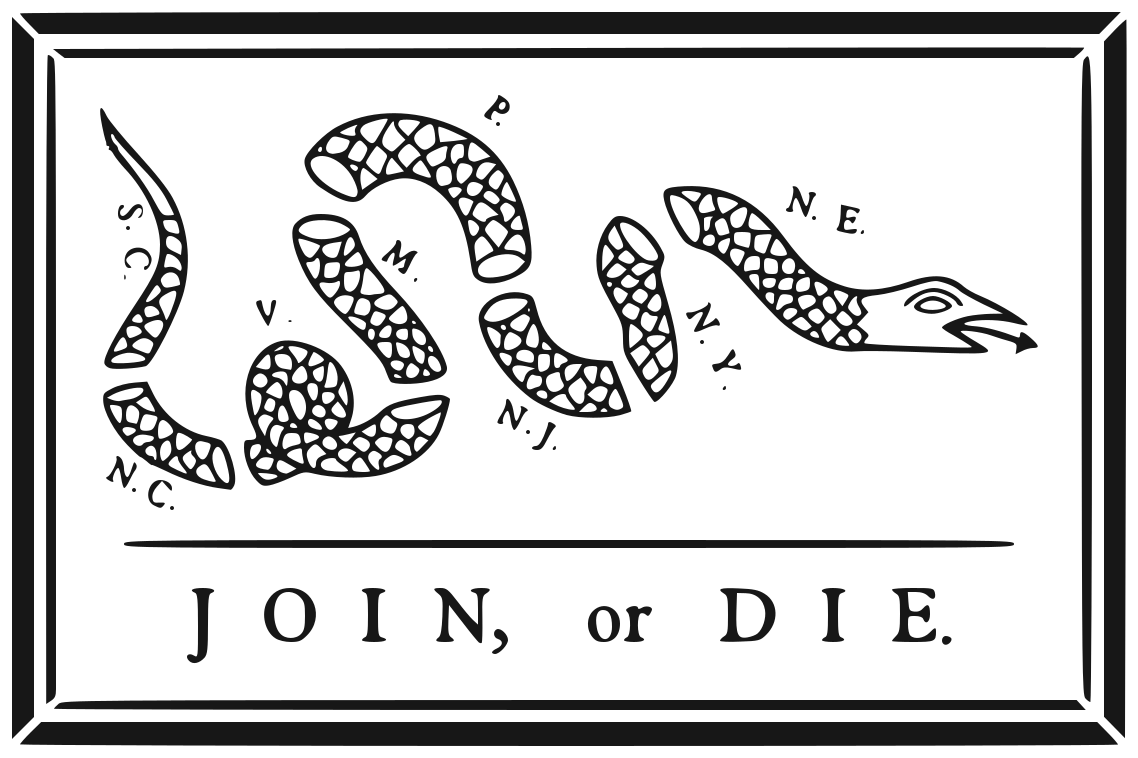What are the Three 3s of Exploration
God - Glory - God
This region had rocky soil, which was not suited to plantation farming, so the New England colonies depended on fishing, lumbering, and subsistence farming.
New England Colonies
A 1763 conflict between Native Americans and the British over settlement of Indian lands in the Great Lakes area
Pontiac's War
A radical political organization for colonial independence which formed in 1765 after the passage of the Stamp Act. They incited riots and burned the customs houses where the stamped British paper was kept.
Sons of Liberty
no power to tax, the President lacked power, no money to buy ships or pay soldiers were all examples of _______
Failures of the Articles of Confederation
A system in which power is divided between the national and state governments
Federalism
The first ten amendments to the Constitution - created by James Madison in order to gain support by the Antifederalists in order to ratify the new Constitution
Bill of Rights
The expansion of countries into other countries where they establish settlements and control the people.
Colonization
In this regions, there were industries such as lumber and iron mills, - there were also large trading centers - the region was known as the "Bread Basket"
The Middle Colonies
Ended French and Indian War, France lost Canada, land east of the Mississippi, to British, New Orleans and west of Mississippi to Spain
Treaty of Paris, 1763
Thomas Paine's pamphlet urging the colonies to declare independence and establish a republican government. The widely read pamphlet helped convince colonists to support the Revolution.
Common Sense
in favor of smaller states. didn't want central gov, unicameral (one) equal representation. Congress can regulate trade and tax
NJ Plan
A system that allows each branch of government to limit the powers of the other branches in order to prevent abuse of power
Checks & Balances
Provides for a Supreme Court and other federal courts Congress can establish.
Interpret the laws
Article III: Judicial Branch
A movement in the 18th century that advocated the use of reason in the reappraisal of accepted ideas and social institutions.
The Enlightenment
This region depended on plantations(large farms) producing large amounts of cash crops, especially rice and tobacco.
Southern Colonies
The political cartoon "Join or Die" was first designed to do what 
Unite the colonists against the French
Delegates from every colony except Georgia to decide how to react to the Intolerable Acts
The First Continental Congress
"Large state" proposal for the new constitution, calling for proportional representation in both houses of a bicameral Congress. The plan favored larger states and thus prompted smaller states to come back with their own plan for apportioning representation.
VA Plan
The principal mission of the legislative body is to make laws. It is split into two different chambers - the House of Representatives and the Senate. Congress is a legislative body that holds the power to draft and pass legislation, borrow money for the nation, declare war and raise a military.
Article I: Legislative Branch
a convention of delegates from the 13 Colonies, managed the colonial war effort, sent The Olive Branch Petition, moved incrementally towards independence, adopted the Declaration of Independence, and acted as the national government
Second Continental Congress
the trading system between the Americas, England, and Africa; Africa would give slaves and rum to the Americas, including the West Indies; America would offer timber, tobacco, fish, and flour; England would mainly process and ship back
Triangle Trade
colony under the direct control of the English crown
Royal Colony
England issued this to limit westward expansion to separate Indians and colonists
Proclamation Line of 1763
Passed at the same time that the Stamp Act was repealed, the Act declared that Parliament had the power to tax the colonies both internally and externally, and had absolute power over the colonial legislatures.
The Declaratory Act
*Called for a bicameral legislative system in which the House of Representatives would be based on population and the Senate would have equal representation in Congress
The Great Compromise
- Provides for an independent, stronger, and more "energetic" executive than in the Articles of Confederation
- The president is commander in chief, chief executive, and chief diplomat
- Other powers include the nomination of executive and judicial officials and the power to grant reprieves and pardons
Article II: The Executive Branch
Arguably the single most important of Benjamin Franklin's many contributions to his nation was securing a _________ ________ during the revolution. Without the financial and military assistance provided by France, the colonists would certainly have fared much worse against the mighty British empire.
French Alliance
1620 - The first agreement for self-government in America. It was signed by the 41 men on the Mayflower and set up a government for the Plymouth colony.
The Mayflower Compact
English colony in which the king gave land to proprietors in exchange for a yearly payment
Proprietary Colony
Identify 3 major causes of the French & Indian War
1. Colonial rivalries between Great Britain and France.
2. France and Great Britain traded with different Native American groups for fur.
3. France and Great Britain arm the Native Americans.
4. Disputed land claims in Ohio River Valley (both sides wanted the same fur-rich land)
On July 8, 1775, the colonies made a final offer of peace to Britain, agreeing to be loyal to the British government if it addressed their grievances.
It was rejected by Parliament.
The Olive Branch Petititon
Agreement that each slave counted as three-fifths of a person in determining representation in the House for representation and taxation purposes
Three Fifths Compromise
Powers given to the national government alone
Enumerated Powers
an economic and political system in which a country's trade and industry are controlled by private owners for profit, rather than by the state.
capitalism